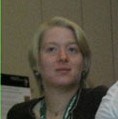|
Delivered at 2008 Boston Harbor Islands Science Symposium.
The acoustic niche hypothesis predicts, in a mature ecosystem, species will avoid competition by singing at unique bandwidths, or pitches, at unique times. Therefore, no two species should sing simultaneously at the same frequency. Furthermore, the hypothesis suggests more mature ecosystems will exhibit pronounced partitioning of the sound spectrum while young or disturbed ecosystems will exhibit more acoustic disorganization, with multiple species interfering on some bandwidths and no species singing at other bandwidths. If these predictions are true, then the degree of acoustic partitioning in a given soundscape should be directly related to the habitat quality and biodiversity of said ecosystem. The ultimate goal of this project is to compare the degree of partitioning in several ecosystems from both northeastern and tropical soundscapes and to test whether this correlates to season, time of day, or ecosystem health, among other variables. Three of the northeastern ecosystems surveyed this summer were Grape, Spectacle and Thompson Islands. The project is still in the data analysis stage but the presentation will focus on what has been observed at Boston Harbor Islands thus far. |
Last updated: February 26, 2015

